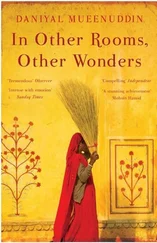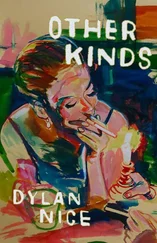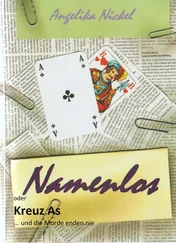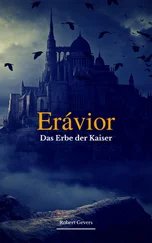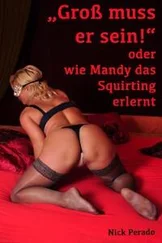These travelers were not like those she had seen going to the fair. On one side of the fire crouched a woman with white hair like a bird’s nest, whose legs were so twisted that she could scarcely have walked along the forest road. Yet surely Erzs’bet had seen her begging in front of the Abbey. And wasn’t that the scullery girl from the castle, still in her apron? Beside the scullery girl sat a man surrounded by children, from a baby to a girl almost as old as Erzs’bet who was holding the baby in her arms. They were dressed in rags, and the baby’s mouth was surrounded by sores. She had seen the man before as well; he had been the Devil in the play at the fair. She had seen him afterward juggling colored balls, while the boy who sat beside him, with the dirty cap on his head, had walked on his hands. The landgravine had forbidden her to watch such a vulgar spectacle.
“Hello, sister,” said M’rta.
“Hello yourself,” said a woman who was standing in the shadows beyond the firelight. “I see you’ve brought the girl.”
Beside the children sat a peddler, who grinned at her without teeth. Out of his sack spilled bottles of ointment and what looked like a mandrake root. And then she noticed that the baby’s curls, which at first had seemed yellow, were the color of spring leaves.
“Is that the way to talk to a princess? Where are your manners?” M’rta turned to Erzs’bet. “You’ll have to forgive her, Erszike. My sister is a queen in her own right, although her nation does not belong to the Holy Roman Empire.”
M’rta had a sister? A sister dressed in gray, like the habit of a nun. A sister whose hair cascaded over her shoulders like ivy.
“Where have you brought me?” She was surprised to hear her voice, so frightened. Her eyes stung from looking around the fire. She rubbed them. The woman’s hair was still green. “Is this a meeting of witches?”
“The Inquisitor would tell you so,” said the woman in gray. Surely Erzs’bet had seen her before. She remembered the mouth, with lines of laughter around it, and the nose, as thin and sharp as a knife. But where?
She felt M’rta’s arms around her, as comforting as when she was a child. “Erszike, these are the T̈nd’r, and my sister Cec’lia is their queen.”
Later she remembered music, although she was not sure when it had started: the music of a pipe and drum. She remembered a dance, but it was not like any dance she had learned at court—a wild dance in which she bent and turned and spun as though before a great wind. Later there was bread with raisins and walnuts baked in it and a honey wine that warmed her to her toes. All these she remembered, sleepily, when the dancing had stopped and she sat among the roots of an ancient oak, with her head on M’rta’s shoulder, listening to the queen of the T̈nd’r.
“Let us examine the facts,” said Cec’lia. Erzs’bet touched a strand of her hair, which was curling over a root. It was as green as the moss on the root, and as soft as—well, ordinary hair. “Item primum: that your mother was murdered by Hungarian counts while your father was visiting the emperor’s court. Afterward, they were absolved by the church, since the wound was so slight that it should not have killed an ordinary woman. Item secundum: that your father sent you to Thuringia, whose landgrave considered himself a man of science and forbade the burning of witches. Item tertium: that since your childhood, M’rta has rubbed your face and hands with an ointment whose secret is known only to the T̈nd’r. Aristotle would tell us that the conclusion is inevitable. But the evidence of the eyes is more convincing than logic. Give me your finger.”
“My finger?” Ersz’bet stared at the thorn that Cec’lia was holding. Was this a meeting of witches after all? Witches stole the blood of baptized children to make their bread. Herman had told her that, when he had called her a witch.
“Let me do it, Erszike.” And this was strange, because M’rta had never even allowed her to sew, for fear that she would spoil her fingers. Perhaps she should run away from these witches, as she had run away from the landgravine. But she felt so sleepy, leaning her head against the trunk of the tree. How much honey wine had she drunk?
A drop of blood ran into her palm, leaving a trail behind it, like a snail moving over a stone. It was a clear and shining green. Suddenly the effect of the honey wine left her, and she understood.
“Then why don’t I have green hair?”
“Your mother’s hair was as green as mine,” said Cec’lia. “Look around at our company.” The children were sleeping at the edge of the firelight, the oldest girl still holding the baby in her arms. The peddler had made a pillow out of his sack. Only the man who had played the Devil still sat piping, like a plaintive bird. “Some of us are lucky. S’ndor’s hair is brown, and his eyes have enough brown in them that he can pass as an ordinary man. But you see his youngest, little Juli. Some of us must hide in the forest, for fear of being identified as a witch. Although the landgrave ordered that witches cannot be burned, they can be driven away. S’ndor’s wife, the mother of those children, was killed two summers ago by a miller’s dog.”
S’ndor stopped his piping to throw another branch on the fire. Before he began piping again, he touched the baby’s hair, ruffling it like spring grass. The beggar moved in her sleep, muttering something that sounded like a song M’rta had sung to Ersz’bet when she was a child.
“You, Ersz’bet, look more like your father than your mother,” Cec’lia continued. “With the help of M’rta’s ointment you can even handle metal, although it could not protect your mother from the prick of a knife. She did not die of her wounds but of poison, since metal is poison to us. How we appear depends on whether both of our parents were T̈nd’r, and both of their parents. But all of us have the blood of the T̈nd’r in us, what the Inquisition calls the witch blood: the blood of the Moon. M’rta’s father was not of the T̈nd’r, but mine was. I could not live at the Wartburg, as she does.” Cec’lia smiled. “Don’t you recognize me, Ersz’bet? We’ve met before.” She reached behind her and picked up a piece of gray cloth, then draped it over her head like a veil. “Now?”
And suddenly Erzs’bet remembered where she had seen that mouth. It had been praying in the Chapel of Saint Anne at the Abbey. She had watched it because she had been bored, and the alternative was to look at the landgravine. “If they knew that the Abbess of Erfurt …”
“Sit still,” said M’rta, who was still holding a handkerchief to her finger. “I don’t want you to start bleeding again.”
“Then there would be no one at the Abbey to help the T̈nd’r. Old Ildiko there, who can’t help singing the songs of the T̈nd’r in her sleep, would no longer be able to beg on the Abbey steps or curl beside our kitchen fire. She would be cast into the street, and if the Inquisition found her …” The lines around her mouth became lines of anger. “I was born after the witch trials, but M’rta remembers.”
M’rta looked down at her hands. “I was only a girl when the Inquisitor came to our town. My father was a baker; he had money to send me and my mother to N̈rnberg. For that, he was burned in the marketplace, although his blood was as red as the priest’s.”
“Like my father sent me away.” Erzs’bet put her face in her hands.
“You think you’re so smart, don’t you?” said Csilla.
“What do you mean?” asked Mrs. Mad’r.
“Getting me to tell Erzs’bet’s story because you want me to talk about my father. He sent me away just like King Andr’s send Erzs’bet away. Well, I think he should have kept her in Hungary!”
Читать дальше


